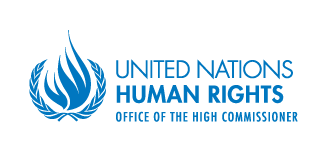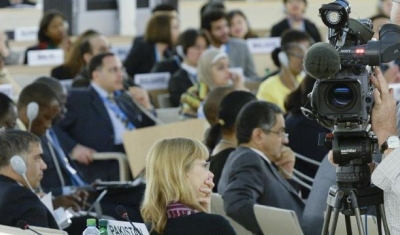Launch of the Practitioners' Guide on Human Rights and Countering Corruption
Event
Background
Corruption is one of the major impediments causing individuals to be denied the full enjoyment of their rights as enshrined in the United Nations (UN) human rights instruments. There has been long consideration given to the impact of corruption on the enjoyment of human rights and acknowledgement that corruption ‘both drives human rights abuses and hinders the effective discharge of human rights obligations’.
The UN Convention against Corruption has proven to be an important instrument governing the international fight against corruption. However, there have been discussions amongst stakeholders on the need to address corruption-related human rights issues. There is a growing recognition on the serious impediment’s corruption-related acts have on the enjoyment and fulfilment of human rights obligations. In March 2019, the UN Special Rapporteur on Torture published a report examining the relationship between corruption and torture or ill-treatment, outlining the predominant patterns of interaction between the two, systemic root causes and recommendations.
Since 2018, there has been a significant improvement in the way UN treaty bodies have addressed the issue of corruption in their work: there is greater awareness, corruption is increasingly linked to other human rights violations and mentioned in more countries. In order to keep improving this work, UN human rights mechanisms also need to receive information and reports on the issue of corruption.
A Practitioners’ Guide on Human Rights and Countering Corruption
In order to encourage anti-corruption groups and movements to use the UN human rights framework at their disposal, the CCPR Centre, the Office of the UN High Commissioner for Human Rights (OHCHR) and the Geneva Academy developed a Practitioners’ Guide on Human Rights and Countering Corruption. This guide focuses notably on how UN human rights mechanisms can be better used to report on corruption issues, and it provides guidance as well as practical recommendations on effectively integrating human rights into anti-corruption efforts. The guide will be presented during this side-event.
On the occasion of the launch of the guide, this panel, co-organized with the CCPR Centre, OHCHR and the Swiss Federal Department of Foreign Affairs, will explore innovative practical ideas on how best to address corruption-related human rights issues within the UN human rights framework.
Key Considerations for the Discussion
- Understanding the impact of corruption on the enjoyment of human rights
- How can the UN human rights framework account for corruption-related human rights issues?
- Do we need to establish a separate human rights pathway/framework to account for the impact of corruption on the enjoyment of human rights?
Opening Remarks
- Valentin Zellweger, Ambassador, Permanent Mission of Switzerland to the UN in Geneva
Moderation
- Felix Kirchmeier, Executive Director, Geneva Human Rights Platform and Manager of Policy Studies, Geneva Academy
Panelists
- Ayuush Bat-Erdene, OHCHR
- Lazarie Eeckeloo, CCPR Centre
- Fatima Kanji, International State Crime Initiative
- Ergun Cakal, Danish Institute Against Torture










